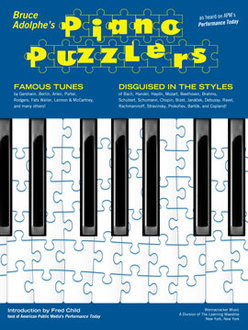. 1756 ~ Alexander Reinagle, English-American composer, born
. 1882 ~ Albert Coates, British conductor and composer
![]() 1891 ~ Sergei Prokofiev, Russian composer and pianist
1891 ~ Sergei Prokofiev, Russian composer and pianist
More information about Prokofiev
![]() Grammy winner
Grammy winner
. 1924 ~ Arthur Frackenpohl, American composer
. 1928 ~ Shirley Temple, American actress best known for her parts as a child actress / singer / Tap Dancer. Possibly her best known part was as Shirley Blake in the movie Bright Eyes when she first performed the song that would become one of her trademarks, “On the Good Ship Lollipop”. She won an Academy Award for best Juvenile Performer in 1935. She went on to star in Stand Up and Cheer!, The Littlest Rebel, Rebecca of Sunnybrook Farm, and Just Around the Corner. She was cast alongside some of the great actors of the time including John Wayne, Cary Grant, Henry Fonda and Ronald Reagan to name just a few. After ending her acting career she became a successful diplomat including a delegate to the United Nations (1969), United States Ambassador to Ghana (1974), United States Ambassador to Czechoslovakia during the velvet revolution (1989–92). She was also one of the celebrities featured in the cover of the Beatles’ 1967 album Sgt. Pepper.
. 1936 ~ Roy Orbison, American rock-and-roll singer, songwriter and guitarist
. 1939 ~ Ray Peterson, Singer
. 1947 ~ Keith Moon, Drummer for the rock band The Who
. 1952 ~ Narada Michael Walden, Musician: drums with the group Mahavishnu Orchestra, record producer, singer, songwriter
. 1952 ~ Elisabeth Schumann, German soprano, died. Best known for her roles in Mozart’s “Don Giovanni” and “Cosi Fan Tutte,” she was also a popular recitalist
. 1985 ~ This was a big day for the flamboyant Liberace. Lee, as he was called by those close to him, first appeared on the TV soap opera, Another World. The sequined and well-furred pianist appeared as a fan of Felicia Gallant, a romance novelist. Later in the day, Liberace was a guest video jockey on MTV!
and
. 1985 ~ The first musical to win a Pulitzer Prize in over a decade was Sunday in the Park with George.
. 1986 ~ Harold Arlen [Hyman Arluck], American composer of Over the Rainbow died at the age of 81
. 2001 ~ Genji Ito, the resident composer for the experimental theater club La MaMa E.T.C. and a music collaborator with many other groups, died of cancer at the age of 54. Ito composed scores for more than 25 theatrical productions at La MaMa. He received an Obie Award in 1986 for sustained excellence. Working closely with Ellen Stewart, La MaMa’s founder, Ito produced scores notable for their stylistic variation and diversity. For 1986’s “Orfei,” a retelling of the Orpheus myth, Ito composed a score that mixed traditional folk instruments with modern electronic ones. For 1993’s “Ghosts: Live from Galilee,” the story of a group of black men accused of raping a white woman in 1931, Ito composed a score that combined blues with country and vaudeville. Ito also wrote 15 compositions for the Ubu Repertory.






